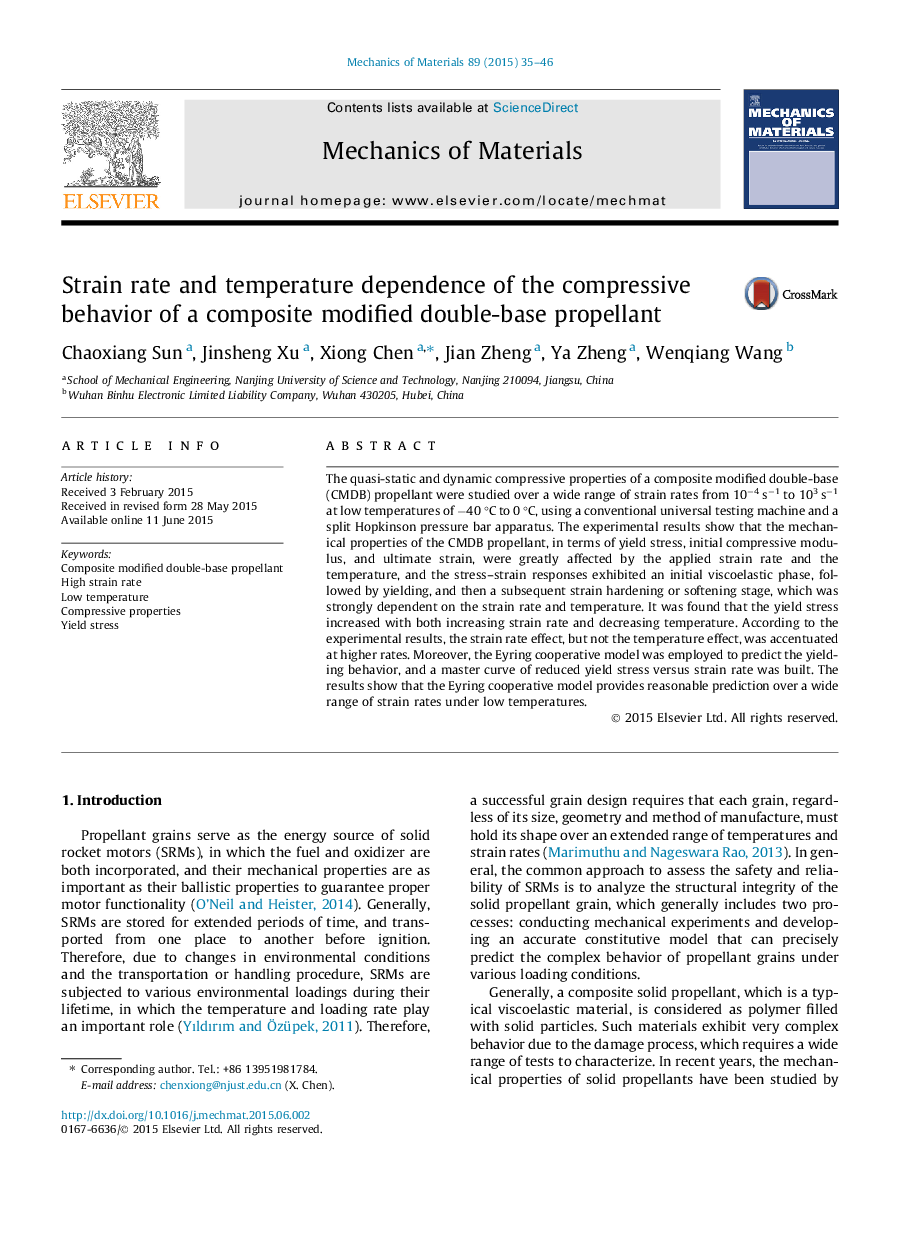| Article ID | Journal | Published Year | Pages | File Type |
|---|---|---|---|---|
| 800164 | Mechanics of Materials | 2015 | 12 Pages |
•We obtained the compressive properties of a CMDB propellant.•The softening and hardening behaviors are temperature and strain rate dependent.•The yield stress increases with increasing strain rate or decreasing temperature.•The Eyring cooperative model can clarify the yield behavior of the CMDB propellant.•The failure criterion is related to the maximum shear stress.
The quasi-static and dynamic compressive properties of a composite modified double-base (CMDB) propellant were studied over a wide range of strain rates from 10−4 s−1 to 103 s−1 at low temperatures of −40 °C to 0 °C, using a conventional universal testing machine and a split Hopkinson pressure bar apparatus. The experimental results show that the mechanical properties of the CMDB propellant, in terms of yield stress, initial compressive modulus, and ultimate strain, were greatly affected by the applied strain rate and the temperature, and the stress–strain responses exhibited an initial viscoelastic phase, followed by yielding, and then a subsequent strain hardening or softening stage, which was strongly dependent on the strain rate and temperature. It was found that the yield stress increased with both increasing strain rate and decreasing temperature. According to the experimental results, the strain rate effect, but not the temperature effect, was accentuated at higher rates. Moreover, the Eyring cooperative model was employed to predict the yielding behavior, and a master curve of reduced yield stress versus strain rate was built. The results show that the Eyring cooperative model provides reasonable prediction over a wide range of strain rates under low temperatures.
